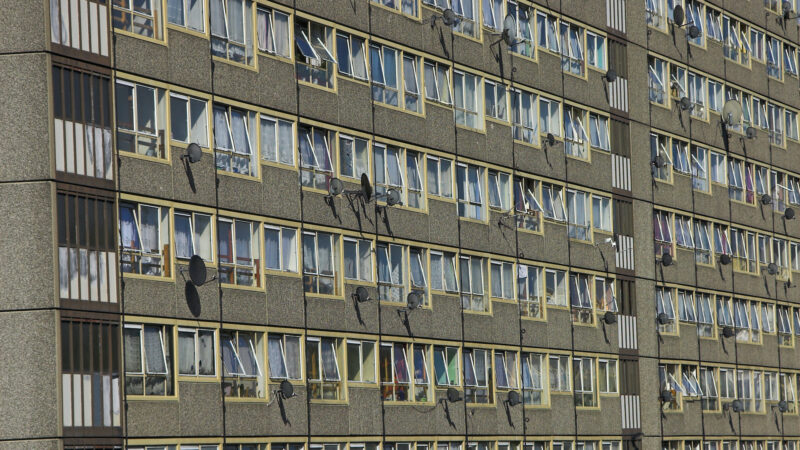
We formed Labour Tenants United in the wake of the outrage spawned by the plan to have tenants on the hook for debt repayments once the pandemic was over. It was clear that the membership and the party were at odds over the idea that tenants – two-thirds of whom had no savings coming into this crisis – ought to cover the risk of their landlord’s investment. It was a sign that those in charge were out of touch with the lived reality of a major chunk of the party’s supporters.
Since then, there have been signs that the party is moving backwards – not just on the response to coronavirus, but also on the necessary policies put forward in Labour’s 2019 manifesto. There was a firm commitment to rent controls and repealing Right to Buy in the last manifesto and any movement away from that position, particularly on Right to Buy, is a betrayal of tenants.
The right to buy council housing was introduced by Margaret Thatcher’s government in 1980. It was pitched as a chance to increase social mobility, but the reality is that the short-term political effects of increasing homeownership have been fantastic for the Tories while the long-term impact on housing provision has been disastrous. As house prices have inflated, it has become increasingly clear that rather than living in a “property-owning democracy” we instead live in a “property bubble democracy”. And the tenants in private and social accommodation left outside that bubble have been abandoned.
Before Right to Buy, the stock of social housing was trending upwards. Since then, the opposite has been happening. Social housing is declining and an increasing share of housing comes from private landlords – so much so that a large proportion of the social housing sold under Right to Buy is now privately rented. The housing situation in the UK is deteriorating, and that deterioration is intrinsically linked to the rising income and power of private landlords.
Labour’s backtracking on these issues is a sign that the decision-makers in the party do not understand the fundamentally opposed interests of landlords and tenants. Recognising this conflict is vital if the party wants to develop a programme to really fix the situation for private tenants. The party cannot return to appealing to the better nature of landlords. Attempting to solve structural problems through a collaborative approach is doomed to fail.
There have been decades of promises to get private landlords to provide affordable housing instead of the government. These programmes, with very few exceptions, have failed because it is antithetical to the interests of landlords to provide affordable housing when the nature of the housing market means they stand to profit more if they charge more. A party that relies so strongly on the support of tenants owes them more than equivocation. It is hard to discount that the continued and disproportionate presence of landlords in positions of power within Labour might be one factor that explains why the party has been falling short.
Labour Tenants United firmly believes that tenants ought to know who they are voting for in internal Labour elections. We believe that the conflicting interests between landlords and tenants make it necessary that tenants know which candidates own and rent properties. This is not a call for a ban on landlords in the Labour Party, nor are we advocating voting for any specific set of candidates. We are simply saying that members whose interests are opposed to landlords deserve to have as much information as possible before they cast their votes. To that end, we are launching a new campaign for these national executive committee (NEC) elections. We will be asking each candidate whether they own and rent a property, and we will be publicising their answers. The Labour membership is made up in large part by tenants – they deserve better, and they deserve transparency.




More from LabourList
‘Labour’s quiet quest for democratic renewal’
‘Labour promised to make work pay. Now it must deliver for young people’
‘Council Tax shouldn’t punish those who have the least or those we owe the most’